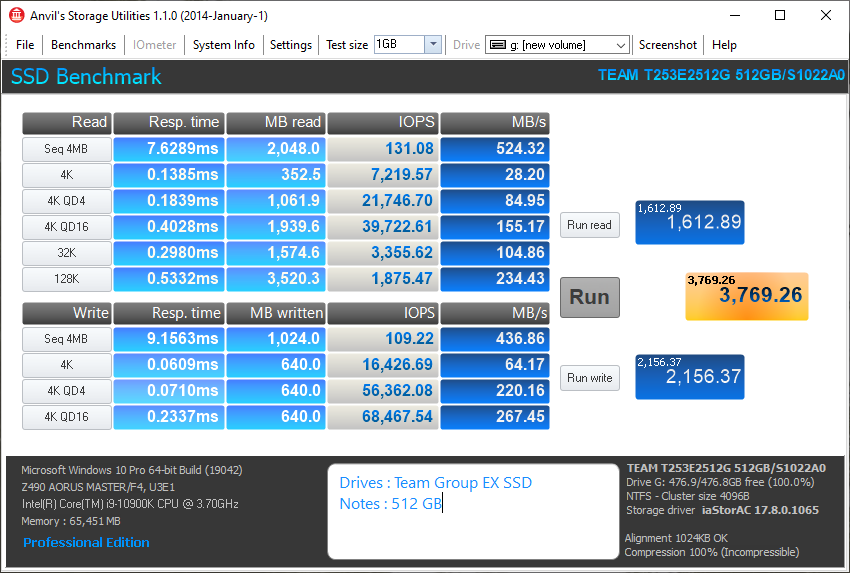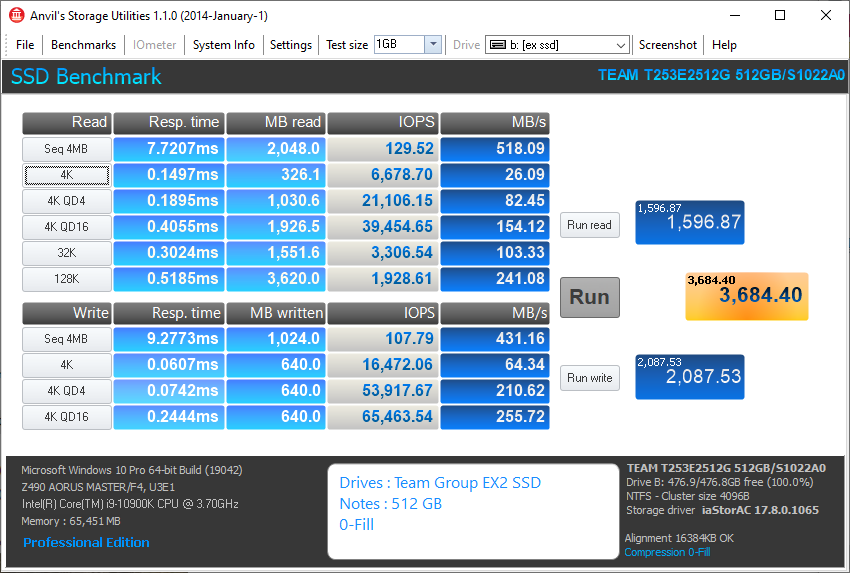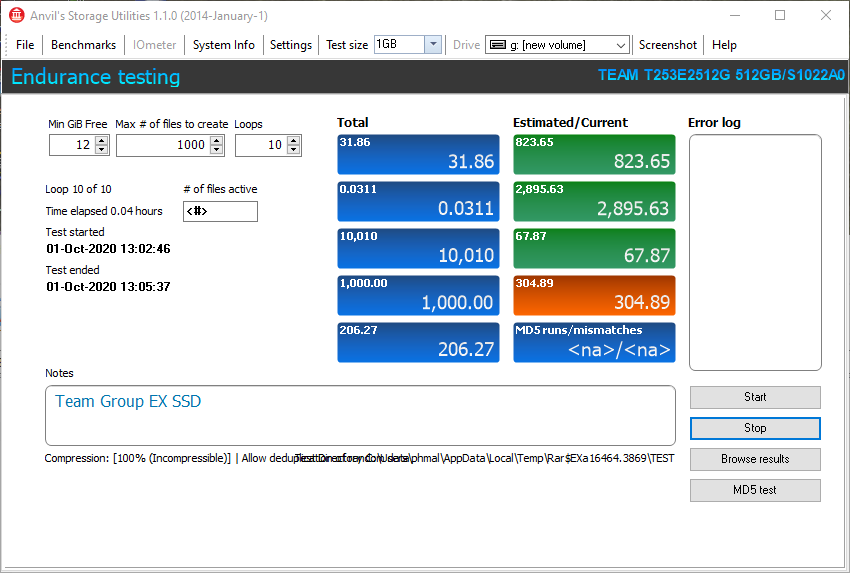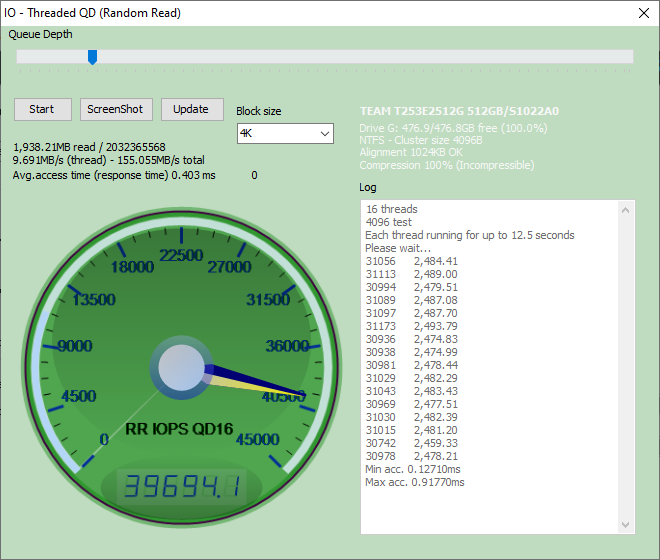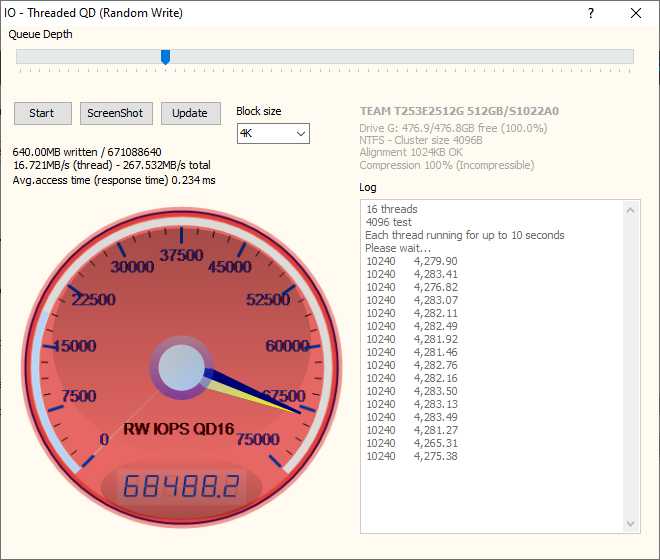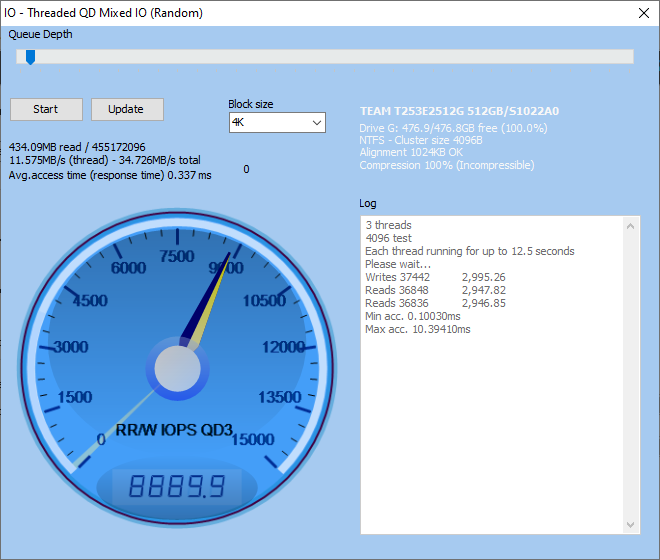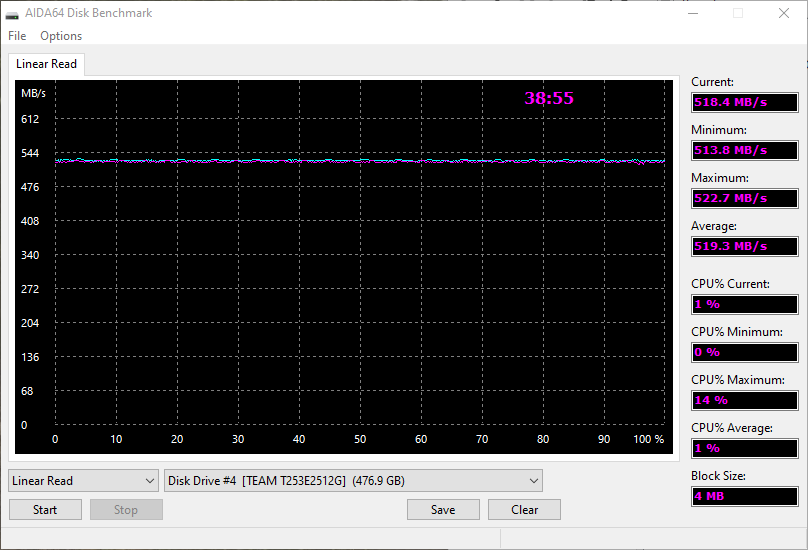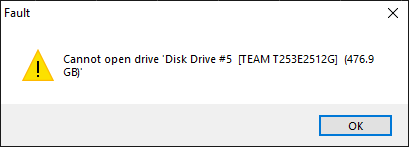Testing – Anvil, PCMARK 10 and Aida64
Anvil’s Storage Utility Pro
Next, we ran our EX2 Elite SSD through the suite of tests in Anvil’s Storage Utility Pro. Anvil’s Storage Utility has an array of tests to measure the performance of your storage device. Anvil’s Storage Utility Pro has the ability to monitor, and test read and write speeds on storage devices such as hard drives and SSDs. Anvil also provides information from the Windows Management Instrumentation (WMI) that shows basic information about the disk and its parameters, including partitions and volumes. For Anvil, we ran the standard SSD benchmark, the endurance benchmark, and the three Que Depth tests, read, write, and mixed IO.
For the EX2 Elite SSD, we ran both the 100% Incompressible SSD benchmark, as well as the 0-Fill Benchmark. On the 100% Incompressible SSD benchmark, our EX2 Elite SSD achieved a sequential read speed of 524.32 MB/s and a sequential write speed of 436.86 MB/s. On the Anvil 0-Fill test, our EX2 Elite SSD achieved a sequential read speed of 518.09 MB/s and a sequential write speed of 431.16 MB/s. Next, we ran Anvil’s endurance test. Our settings were a minimum of 12 GB free, a maximum of 1000 files run on 10 total loops.
The final tests we ran in Anvil’s Storage Utility Pro as the Queue Depth tests. There are three Queue Depth tests in Anvil; random read, random write, and mixed IO (random). The results are recorded in IOPS. On the random read test, our EX2 Elite SSD hit 39694.1 random read IOPS. On the random write test, the EX2 Elite SSD hit 68488.2 random write IOPS. On the final test, the mixed IO queue depth test, our EX2 Elite SSD hit 8889.9 random read and write IOPS.
PCMARK 10
PCMARK 10 is a full system benchmark with an array of tests. We ran the full system drive benchmark in PCMARK 10 on our Team Group EX2 Elite SSD. The full system drive benchmark takes roughly an hour to run. UL, the makers of 3DMARK also make PCMARK 10. They describe this test as follows in the test details. “The Full System Drive benchmark uses a wide-ranging set of real-world traces from popular applications and common tasks to fully test the performance of the fastest modern drives. This benchmark writes 204 GB of data to the drive over the duration of the test. This data is deleted when the test ends.”
In the PCMARK 10 full system disk benchmark, our 512 GB EX2 Elite SSD achieved a score of 833 with a bandwidth of 139.86 MB/s.
Aida64
The final benchmark we ran on our EX2 Elite SSD is the Aida64 disk benchmark. Specifically, we run the linear read and linear write tests in the Aida64 disk benchmark. However, like with our recent review of the T-Force Vulcan G SSD, we were unable to run the linear write tests. We tried to run the linear write tests on several different drives on both a 9900k system, as well as the 10900k system used for testing in this review. We also tried to reinstall Aida64 thinking this would fix the issue. However, we had no luck. We tried to use Windows Diskpart to clean the drive but again had no luck. Once we are able to run the linear write test on this drive, we will update the review.
On the Aida64 linear read test, our EX2 elite SSD averaged 519.3 MB/s. Our EX2 Elite SSD hit a maximum speed of 522.7 MB/s and a minimum speed of 513.8 MB/s. As for the linear write test, every time we ran the test, we got an error stating the drive could not be opened.



